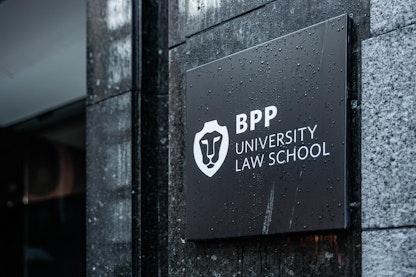When will law firms move to the SQE?

This article explores when law firms will start using the SQE for their law trainees.
With the transition to the Solicitors Qualifying Examination (SQE) – a comprehensive and rigorous assessment for prospective solicitors – well underway, we took a temperature check with law firms to see how things are going.
Questions were raised over whether candidates would still benefit from the foundational skills taught under the previous route, the Legal Practice Course (LPC). It became clear that law firms still expected candidates to undergo legal training well above the minimum required to complete the SQE exams.
Firms were also concerned about candidates being instilled with the future skills required for a dynamic legal workforce.
What skills do firms expect in the post-SQE era?
We conducted a survey of law firms aiming to look at their response to the challenges of the SQE. We were particularly interested in the skills law firms and legal professionals expected new entrants to have, and what they could improve on.
The ten key skills identified can be grouped into three broad categories – spotlighting, strengthening, and sustaining.
New skills not currently catered for sufficiently in legal education that need spotlighting
Skills that are currently taught but that require strengthening
Skills that new entrants currently possess that should be sustained
Skills to be spotlighted were:
Technology and digital skills
Creativity
Resilience and adaptability
Skills to be strengthened were:
Commerciality
Written communication skills
Skills to be sustained were:
Professionalism
Teamwork
Client care
Legal knowledge
Management and organisation
To help develop these skills, law firms have taken the decision to put trainees through SQE preparation courses which focus simultaneously on the SQE exams and making sure learners are career ready.
When will law firms move to the SQE?
2023 is likely to be the point where we will see more law firms offering SQE for their trainees, with fewer LPC cohorts from 2024 onwards.
During this period of transition, several firms will continue with their LPC cohorts for the mid-short term. But with the number of SQE students and those undertaking Qualifying Work Experience (QWE) increasing, firms have a different dynamic to think about.
Many law firms have already partnered with BPP to offer the SQE. These include all six City Consortium firms, Freshfields Bruckhaus Deringer, Herbert Smith Freehills, Hogan Lovells, Linklaters, Norton Rose Fulbright, and Slaughter and May.
What law courses are students doing?
At present, students will be either be studying the LPC or a suitable SQE preparation course based on their legal knowledge. For students who are already undertaking a training contract or qualifying work experience, they will study a course based on the preference of the law firm they’re employed by.
What about SQE training contracts?
Training contracts, commonly referred to as TCs, are taken under the LPC route to qualification. If you’re qualifying via the SQE route, you will instead undertake QWE.
Are firms taking on LPC and SQE candidates at the same time?
As there are two routes for trainees to follow, firms are likely to see applicants with different legal qualifications. But the SQE won’t put students at a disadvantage against their LPC counterparts.
“All the firms I’ve spoken to…they tell me that if the candidate’s good enough, if they’ve done the LPC or done the SQE or not done either beforehand, if they’re good enough, and they want to hire them, they will make it work.”
Jonny Hurst – BPP University Law School
It’s worth noting, even after 2025, there will be some LPC legacy graduates taken on by firms, though they may have to complete the SQE2 exams and QWE once the training contract pathway ends.
Final thoughts
The SQE is here to stay, and over the coming years law firms will be embracing it as their primary training route. While there are some reservations about how prepared candidates will be for entering the legal workforce, law firms are looking for training providers to deliver high-quality, well-rounded, and future-proof training. As we have seen by major law firms such as the City Consortium, finding a trusted training provider has encouraged more firms to move over to the SQE route.
The SQE is here to stay, and it’s changing the landscape of legal training. Are you ready to embrace the future of law? View our SQE courses to get started.


